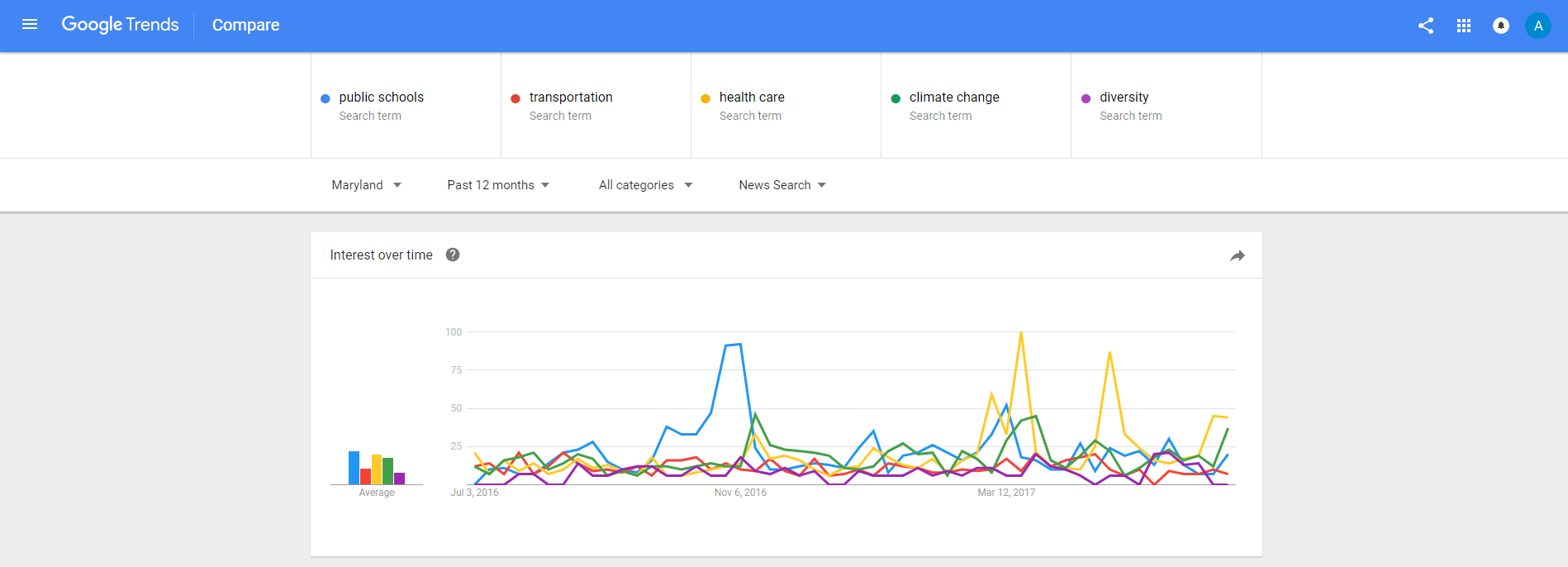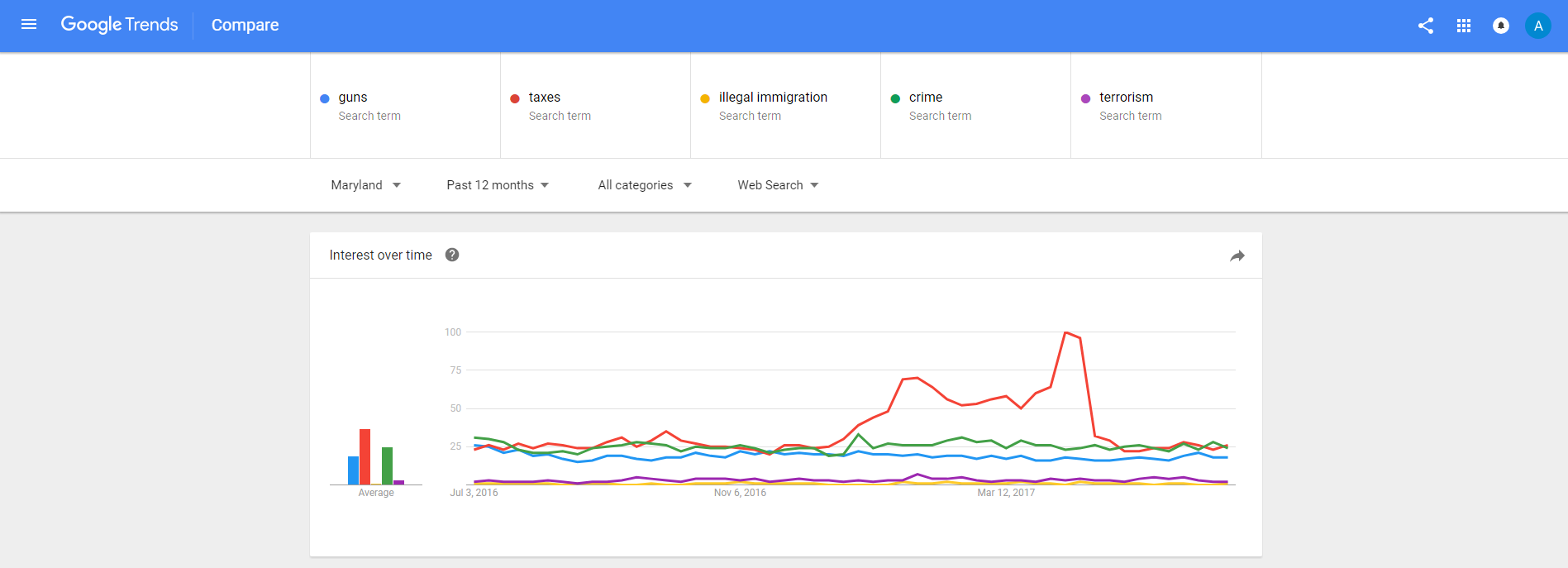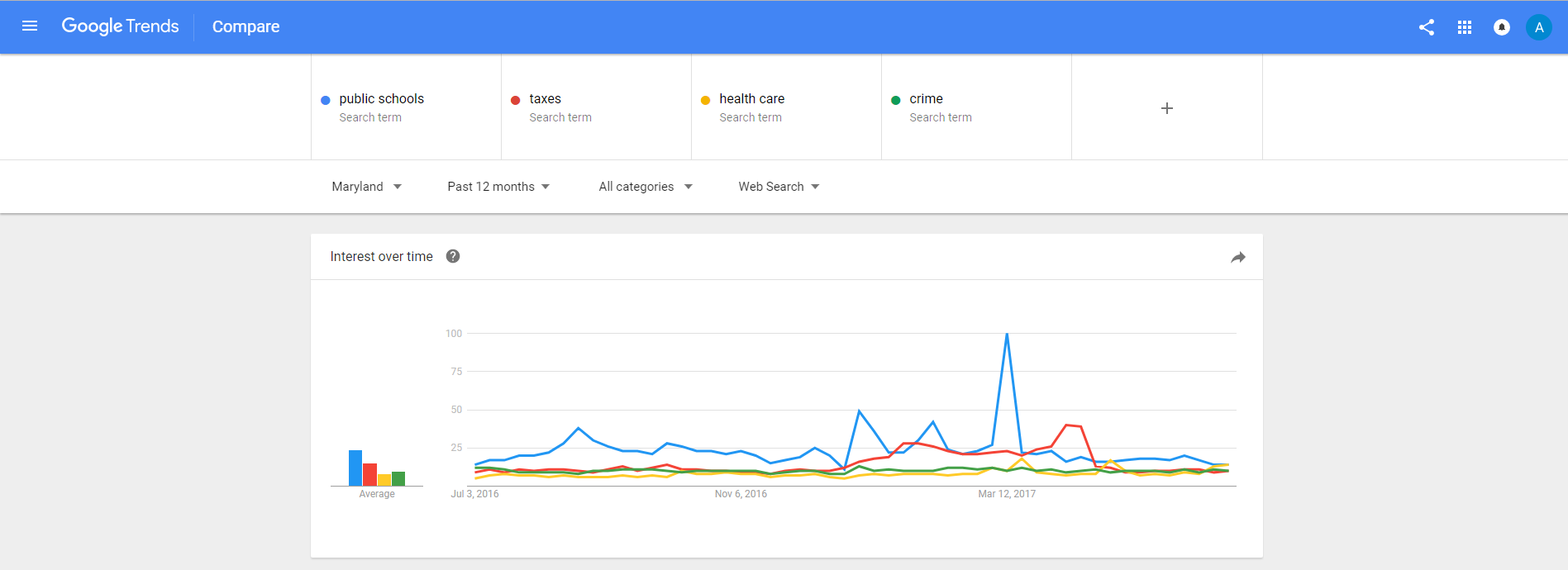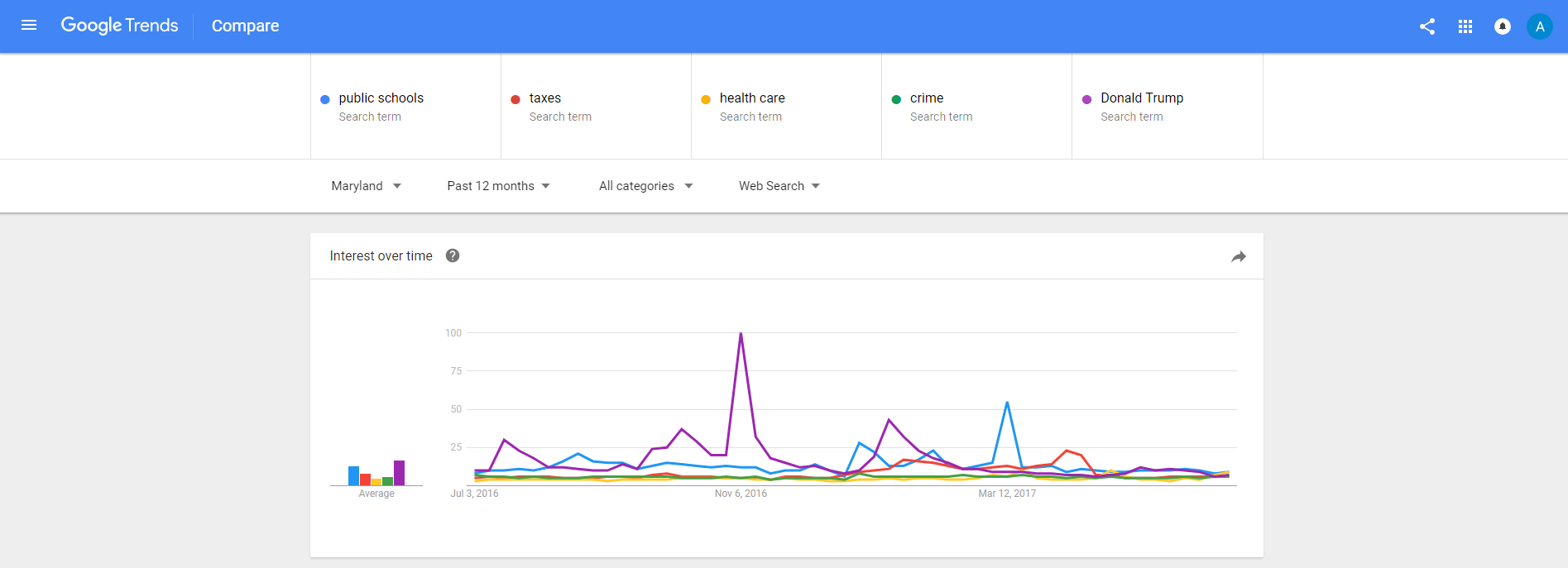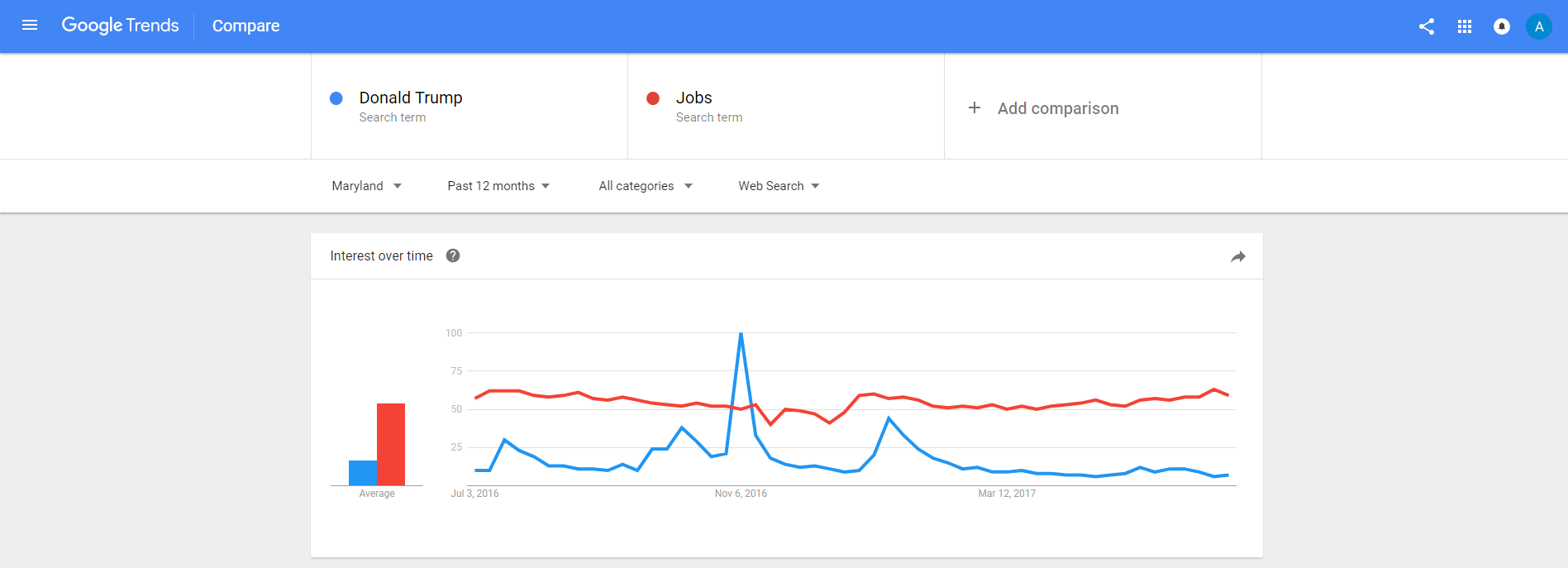By Adam Pagnucco.
A fascinating, but rather depressing, article in Vox makes the following allegation: political scientists can learn as much, or more, about political sentiment from Google Trends as they can from polls. The reason? People are more honest with Google in their search behavior than they are with pollsters. Subjects that they might never admit would be of interest are in fact searched when no one is watching! Search data may not tell us which candidate will get the most votes. But it can tell us what voters are thinking about when they head to the ballot box. And that is definitely politically relevant.
Let’s do an exercise using Google search trends by people in Maryland over the last twelve months. First, let’s look at searches on five issues that Democrats often run on: public schools, transportation, health care, climate change and diversity. The chart below shows relative search frequency on each of these terms. The horizontal axis shows weeks over time. The vertical axis shows search frequency as an index relative to the peak of the most popular search term in the data set (which is set at 100). In this issue set, public schools wins out, with an average search index of 22 out of 100. Health care gets 20, followed by climate change (18), transportation (11) and diversity (8).
Next, let’s look at five issues that Republicans often run on: guns, taxes, illegal immigration, crime and terrorism. Taxes is number one here, with an average search index of 37 out of 100. Crime gets 25, followed by guns (19), terrorism (3) and illegal immigration (1).
Now let’s compare the top two Democratic issues (public schools and health care) to the top two Republican issues (taxes and crime). Public schools wins this set with an average search index of 24, followed by taxes (15), crime (10) and health care (8). The fact that public schools gets a higher search index than taxes would seem to be good news for Democrats.
There is another search term that rivals these four: Donald Trump. When Trump is inserted into the mix, he gets an average search index of 17 for the past twelve months, followed by public schools (13), taxes (8), crime (6) and health care (5). Much of this is due to spikes in Trump interest around the general election and the inauguration, although he has held his own against the other search terms for most of this year.
So should Trump-chanting Democrats celebrate? Not so fast. There is a politically relevant search term that trumps Trump: jobs. A straight-up comparison between jobs and Trump shows the former search term blowing away the Tweeter in Chief 54-17. That three-to-one edge held up roughly the same in the Baltimore and Washington metro areas and on the Eastern Shore. In fact, the only time in which Trump had more searches in Maryland than jobs was around the general election.
What does all this mean? Maybe not much. Google Trends is a very new source of data subject to much interpretation. It has almost none of the mathematical science built around it that polling has. That said, here’s a suggestion. Donald Trump is indeed on the minds of Marylanders. But they are thinking much more about jobs. To the extent that Trump fixation detracts from the Democrats’ ability to promulgate a positive economic message, Governor Larry Hogan will benefit.

